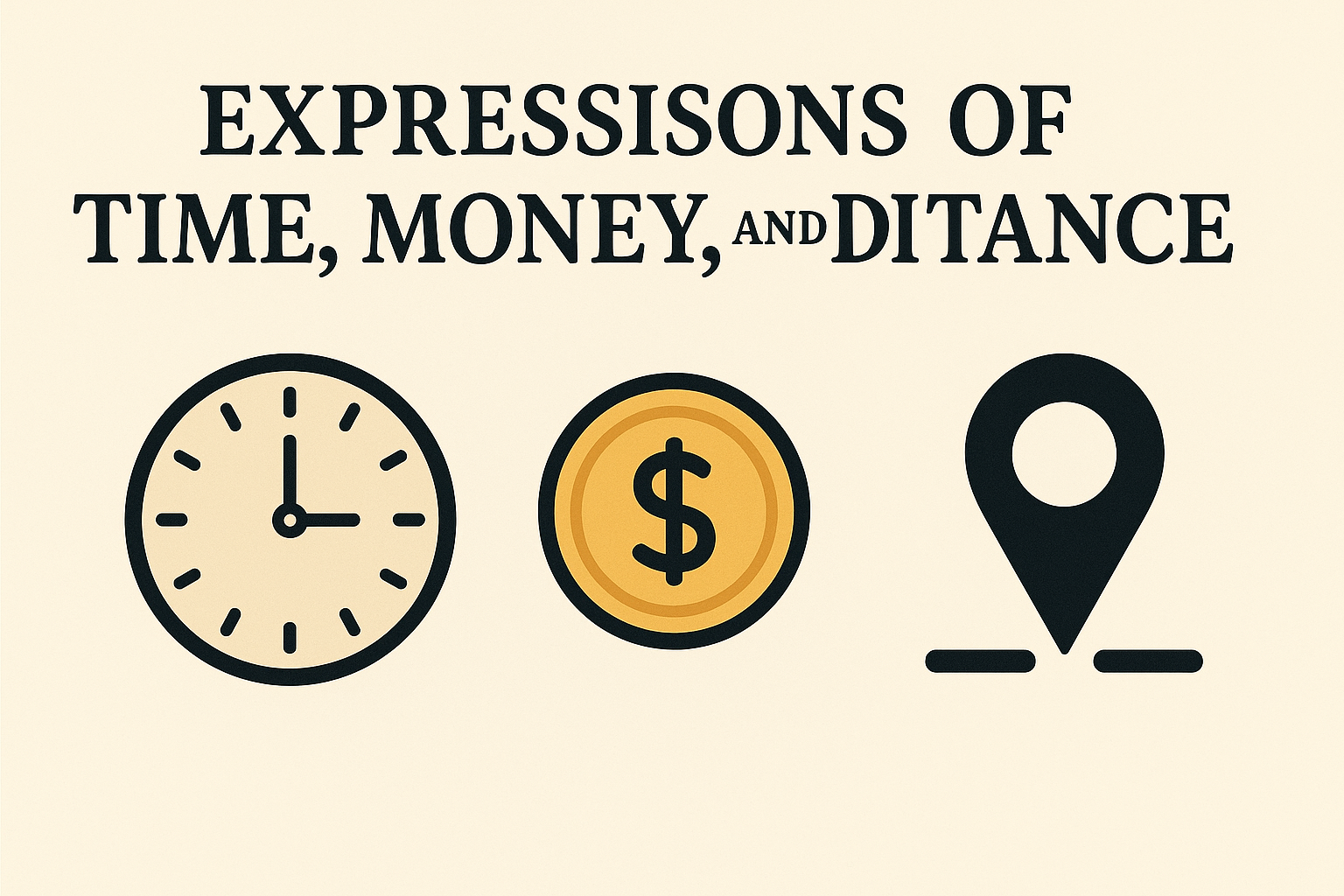Expressions of Time, Money, and Distance in Grammar-Grammar Puzzle Solved (37)
Understanding subject-verb agreement is crucial for writing clear English. One area that often confuses is how to treat expressions of time, money, and distance. These expressions may look plural but are treated as singular when they refer to a total amount or a single unit of measurement. This article explains these rules in detail and provides many examples to help you master them.

What Are Expressions of Time, Money, and Distance?
These expressions are quantities that refer to how much time, money, or distance something involves. Even when they contain plural words like “dollars” or “miles,” we use singular verbs when they function as a single unit or total amount.
1. Expressions of Time
When we consider time as a whole amount, we use a singular verb.
Examples:
- Ten minutes is not enough to finish this test.
- Twenty-four hours seems like a long time when you’re waiting.
- A year goes by so fast.
- Five weeks is the duration of the training program.
- Two hours is plenty of time to complete the task.
In all these cases, even though “minutes,” “hours,” or “weeks” are plural, the sentence talks about time as a complete block, not individual units. So, the verb must agree with the singular idea.
2. Expressions of Money
When talking about a specific amount of money, treat it as singular, because it’s seen as one total unit.
Examples:
- Ten dollars is enough to buy lunch.
- Fifty thousand rupees was spent on the project.
- Five euros is all I need.
- A million dollars is a lot of money.
- Two hundred pounds seems excessive for a coat.
But if the sentence refers to the individual units rather than the total, a plural verb may be used.
Example:
- Ten dollars were slipped into ten envelopes.
(Here, “ten dollars” means ten separate bills.)
3. Expressions of Distance
When distance is mentioned as a single measurement, it takes a singular verb.
Examples:
- Ten miles is a long walk.
- Two kilometers is the distance between the two towns.
- One hundred yards seems too far to jump.
- Five feet is the required clearance.
- Thirty meters is the depth of the well.
Again, although “miles,” “kilometers,” or “yards” are plural, the idea is singular — one stretch of distance.
Key Tip to Remember
Ask yourself: Is this sentence talking about a single idea or multiple items?
- If it’s one total amount, use a singular verb.
- If it’s multiple separate items, use a plural verb.
More Combined Examples
- Five hours is all we need to finish.
- Twenty rupees is the bus fare.
- Three miles is the distance to the village.
- Six months is a long time to wait.
- Two days is not enough for a vacation.
- Four liters is the required amount.
- Nine feet is the width of the room.
All of these sentences follow the same pattern. The unit of measurement may look plural, but we treat it as a singular subject.
Final Thoughts
Mastering subject-verb agreement in these cases becomes easier with practice. Remember that we often treat the expressions of time, money, and distance as singular when they refer to a single unit or block. This rule helps you write English that sounds natural and correct. Stick to the idea behind the expression, not just the form of the word.
The Colonial and Early National Period:
https://americanlit.englishlitnotes.com/colonial-and-early-national-period/
Difference Between Few and Little:
https://grammarpuzzlesolved.englishlitnotes.com/difference-between-few-and-little/
Letter to Friend on Sister’s Marriage:
https://englishwithnaeemullahbutt.com/2025/04/26/letter-to-friend-on-sisters-marriage/
James Joyce as a Modernist Writer: https://englishlitnotes.com/2025/05/30/james-joyce/
For grammar lessons, visit ChatGPT to explore the platform and interact with the AI: https://chat.openai.com
Discover more from Grammar Puzzle Solved by Naeem Ullah Butt
Subscribe to get the latest posts sent to your email.